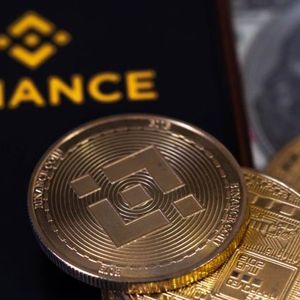The cryptocurrency industry is witnessing a dynamic shift as major players take decisive actions to shape the future of the sector. Coinbase CEO Brian Armstrong has announced a policy to avoid law firms hiring individuals he claims worked against the crypto industry during their time in government, signaling a pushback against perceived regulatory overreach. Meanwhile, Bitget has expanded its presence in Southeast Asia with the launch of BitEXC in Vietnam, aiming to cater to one of the world’s largest crypto-owning populations through tailored services and local partnerships. Bitget Launches BitEXC in Vietnam: A New Era of Cryptocurrency Trading in Southeast Asia Cryptocurrency exchange Bitget has launched BitEXC, a new trading platform specifically designed for the Vietnamese market. The platform promises to cater to the unique preferences of Vietnamese users through tailored services, localized customer support, and educational outreach, marking a pivotal step in Bitget’s expansion plans. Vietnam has emerged as a global hotspot for cryptocurrency adoption, ranking second worldwide in cryptocurrency ownership, with approximately 21.2% of the population holding digital assets. Recognizing this significant potential, Bitget and BitEXC CEO Gracy Chen expressed the platform's mission to bridge existing gaps in the market: ”Vietnam has shown tremendous potential in crypto, but yet the market still needs platforms that truly understand and cater to its unique audience. BitEXC was created to bridge this gap by providing local support and products customized to fill the needs of its crypto users,” Chen said. BitEXC is designed to resonate with Vietnamese crypto enthusiasts by offering a comprehensive suite of trading options, including peer-to-peer ( P2P ) trading, spot trading, and futures trading. Initially, only P2P trading was operational at launch, with spot and futures trading to follow shortly. To enhance convenience for local users, BitEXC integrates popular Vietnamese payment methods such as ViettelPay, Momo (a subsidiary of Canadian fintech Nuvei), and ZaloPay, which is tied to the country’s leading messaging platform, Zalo. BitEXC is not just another trading platform; it comes with a clear roadmap aimed at fostering user engagement and financial growth. Key features expected to roll out within the next three months include an ”Earn” program and copy trading, enabling users to diversify their income streams and follow successful traders’ strategies. The platform leverages Bitget’s robust infrastructure and security protocols, extending the benefits of the $300 million Bitget Protection Fund to BitEXC users. The fund, held in Bitcoin (BTC) and Ether (ETH), is designed to protect users against market volatility and unforeseen risks. Vietnam’s Crypto Landscape: A Market Poised for Growth Vietnam’s burgeoning interest in cryptocurrency aligns with its government’s proactive stance on blockchain technology. The Ministry of Information and Communications recently unveiled a National Blockchain Strategy, which aims to integrate blockchain into various industries and provide legal recognition for digital assets. This progressive regulatory framework sets the stage for platforms like BitEXC to thrive. However, BitEXC faces competition in a market where decentralized exchanges (DEXs) dominate user preferences. A 2023 survey revealed that 90% of Vietnamese crypto users favor DEXs over centralized platforms. To capture market share, BitEXC must deliver on its promise of localized services and user-centric innovations. BitEXC’s launch coincides with a period of significant growth for Bitget. The exchange reported $700 million in capital inflows in Q2 2024, along with a 50% quarter-on-quarter increase in traffic. Boasting over 45 million users globally, Bitget continues to expand its offerings, recently listing Hedera (HBAR) on Dec. 3—the same day BitEXC debuted. In this surging marketplace, BitEXC has the potential to become a major player, provided it delivers on its promises of localized support and innovative trading solutions. Coinbase CEO Brian Armstrong Takes a Stand Against Anti-Crypto Officials in Law Firms In other crypto exchange news, Coinbase CEO Brian Armstrong announced that the exchange will no longer work with law firms that hire individuals involved in what he called ”anti-crypto actions” during their government tenure. This declaration, made via an X post on Dec. 3, has sparked widespread debate within the legal and crypto communities. Armstrong accused some former government officials of attempting to ”unlawfully kill” the cryptocurrency industry by failing to clarify regulatory frameworks. Without naming specific individuals, he urged the broader crypto community to take a stand, stating: Armstrong’s comments come amid a growing sentiment within the crypto sector that regulatory ambiguity and enforcement-heavy tactics have stifled innovation. He claimed that senior partners at many law firms remain unaware of the crypto industry's stance on this issue and called on crypto advocates to communicate the potential consequences of hiring anti-crypto officials. Armstrong’s post specifically highlighted Coinbase’s decision to sever ties with Milbank, a prominent law firm, after it hired Gurbir Grewal, the former enforcement director of the US Securities and Exchange Commission (SEC). Grewal, who left the SEC in October 2024, had played a pivotal role in over 100 enforcement actions targeting the digital asset industry. Milbank announced Grewal’s appointment to its litigation and arbitration group on Oct. 15, with Chairman Scott Edelman lauding Grewal’s “record of success” as a federal prosecutor and enforcement official. However, Armstrong criticized Grewal’s tenure at the SEC, stating: ”If you were senior there, you cannot say you were just following orders. They had the option to leave the SEC, and many good people did. It was not a normal SEC tenure.” This move marks one of the first high-profile instances of a crypto company taking direct action against a law firm based on its hiring decisions. A Tense Regulatory Backdrop Grewal’s tenure at the SEC coincided with heightened regulatory scrutiny of the cryptocurrency industry. Under his leadership, the SEC pursued numerous enforcement actions against crypto firms, often citing noncompliance with securities laws. Critics within the industry have argued that the SEC’s approach has been overly punitive, targeting businesses without providing clear guidelines for compliance. The SEC's stance has long been a contentious issue for the crypto industry, which has repeatedly called for clear regulatory frameworks. Armstrong’s decision to cut ties with Milbank signals a shift toward a more confrontational approach, where the industry actively challenges those perceived as adversaries. Armstrong’s statements have elicited mixed reactions. Supporters in the crypto community have praised his stance as a necessary step to defend the industry against overreach. Others, however, have raised concerns about the potential implications for the legal profession and the crypto sector’s relationship with regulatory bodies. Legal experts suggest that Armstrong's move could prompt law firms to reassess their hiring practices, particularly as the crypto industry becomes an increasingly significant client base. However, it also raises ethical questions about whether firms should be penalized for hiring individuals with regulatory experience, even if their actions in government were controversial. Armstrong’s comments come at a time of renewed optimism within the crypto community following Donald Trump’s victory in the 2024 US presidential election. Many believe the new administration will adopt a more favorable regulatory stance toward digital assets. This optimism has fueled bullish momentum in the market, with Bitcoin reaching an all-time high of $99,645 on Nov. 22. The changing political climate may provide an opportunity for the crypto industry to push for clearer regulations and repair strained relationships with regulatory agencies. However, Armstrong’s hardline stance suggests that tensions between the industry and certain officials remain unresolved. Brian Armstrong’s decision to cut ties with Milbank over its hiring of Gurbir Grewal represents a significant moment in the relationship between the crypto industry and regulatory authorities. By refusing to work with law firms that hire individuals perceived as adversaries of the industry, Coinbase is sending a clear message: the crypto sector will no longer passively accept regulatory actions that it views as harmful or unjust. As the industry navigates a rapidly changing regulatory landscape, Armstrong’s bold stance may inspire other crypto companies to take similar actions, potentially reshaping the dynamics between the sector and its legal and regulatory counterparts.










